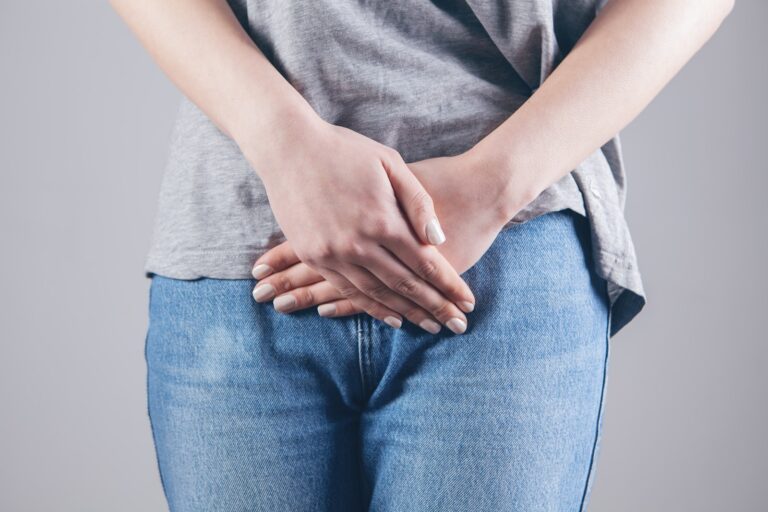Experts recommend mixing up sexual positions to avoid abdominal pain, as well as practicing safe and healthy sexual practices like communicating openly with your partner, hydration, and a good diet. Medications like antacids and simethicone can also help reduce digestive symptoms.
Usually, cramping after sex is caused by uterine muscular contractions related to orgasm. But lingering pelvic pain could indicate something more serious like infection or a medical condition like endometriosis or adenomyosis.
Causes
Sex is fun, but it’s no secret that it can also cause weird things in the body. That includes pain in the stomach after sex—a condition known as dyspareunia. The good news is that it’s rarely a sign of something serious, but it’s still important to talk to your doctor about it. The causes range from everyday bodily responses to medical conditions like pelvic infections and musculoskeletal issues.
In women, pain during or after sex could be a sign of pelvic infection like pelvic inflammatory disease or an overgrowth of cysts or fibroids (fluid-filled pockets in the uterus). Infections and irritations that can affect the vagina, ovaries, and fallopian tubes—like STIs such as chlamydia and gonorrhea—can lead to painful intercourse as well. In addition, ovarian cysts and uterine fibroids can make it painful to insert the vulva for vaginal sex.
Males can experience abdominal pain during sexual activity, too, often due to prostatitis, which is swelling of the prostate gland (the walnut-sized gland that produces semen and helps propel it during ejaculation). This can occur as a result of STIs such as chlamydia or gonorrhea or from an overgrowth of benign cysts or enlarged lymph nodes in the scrotum. Pain during or after sex could also be caused by an enlarged or irritated penis, a hernia, or anal fissures.
Symptoms
Stomach pain during sex is not uncommon, but it can be a sign of a medical condition. It could be a one-off event caused by deep penetration or something as simple as muscle spasms, or it could signal an underlying issue like pelvic inflammatory disease or infections (like chlamydia or gonorrhea).
If the pain is sharp and concentrated at the area of penetration, this is called dyspareunia. Dyspareunia is often caused by a lack of proper technique during penetration, but it can also be an indicator of a sexually transmitted infection or an underlying condition, such as endometriosis or adenomyosis.
A person may also experience stomach pain after sex as a result of a digestive disorder, such as gastroparesis. This is a condition where the stomach takes longer than usual to empty its contents, resulting in abdominal pain and bloating. Dyspareunia can also be a symptom of celiac disease, an autoimmune disorder where the body is unable to tolerate gluten, a protein found in wheat, barley, and rye.
A woman who experiences stomach pain after sex can also have uterine fibroids or uterine adhesions, which are scar tissue that causes the uterus and cervix to stick together. These conditions can cause a variety of symptoms, including lower abdomen pain, abnormal vaginal bleeding or discharge, changes in menstrual periods, and loss of appetite.
Treatment
If you are experiencing stomach pain after sexual activity, it is important to consult a doctor so that the cause can be diagnosed and treated. It is also a good idea to practice healthy self-care and preventative measures so that this discomfort does not recur.
Depending on the underlying cause, there are several treatments for stomach pain after sexual activity. For example, if your pain is due to an allergic reaction to sperm (seminal plasma hypersensitivity), taking antihistamines and avoiding foods that are known to trigger digestive symptoms can help to relieve this condition.
Women who experience pain after orgasm may be able to find relief by drinking plenty of fluids and by eating small, frequent meals. This can help to reduce bloating and gas. It can also be helpful to talk to a therapist about any emotional or relationship issues that might be contributing to this type of pain.
For females, if the abdominal pain is caused by an infection in the reproductive organs such as pelvic inflammatory disease (PID), or ovarian cysts, the doctor can prescribe antibiotics to treat these conditions. Women who have PID can prevent recurrence of this condition by using a condom during sexual intercourse.
For males, a gynecologist can prescribe hormone therapy or antibiotics to treat the underlying cause of their stomach pain after sexual activity. They can also recommend ways to improve their erections, such as changing the angle of penetration or the rhythm of ejaculation.
Prevention
Stomach pain after sex can be caused by digestive issues, such as irritable bowel syndrome, constipation or acid reflux. These problems can cause bloating, pain, and cramping that exacerbate during sex or other sexual activity. In addition, the digestive tract is right in front of the bladder and uterus, so any irritation there can trigger stomach pain.
Other possible causes include reactions to sperm, which can cause the uterus to contract, and pelvic inflammatory disease, ovarian cysts or adenomyosis (growths on the ovaries, fallopian tubes, or intestines). A tilted uterus, which Yale New Haven Hospital ob-gyn Mary Jane Minkin told Women’s Health can affect about 30 percent of women, may also contribute to pain during sex, since it puts more pressure on the organ.
In addition to these medical reasons, sex can also trigger stomach pain in people who are overweight, have certain food intolerances or allergies, and have other conditions like varicose veins or chronic pelvic pain syndrome (CPPS). These conditions cause the lower abdominal muscles to tighten involuntarily, causing pain during and after sex. A gynecologist or pelvic specialist can help find the source of the pain and offer treatment to alleviate it. In the meantime, there are a variety of at-home tweaks and self-care practices, including drinking water, eating a healthy diet, avoiding spicy foods, taking probiotics, and exercising regularly, that can reduce symptoms.
See Also:






